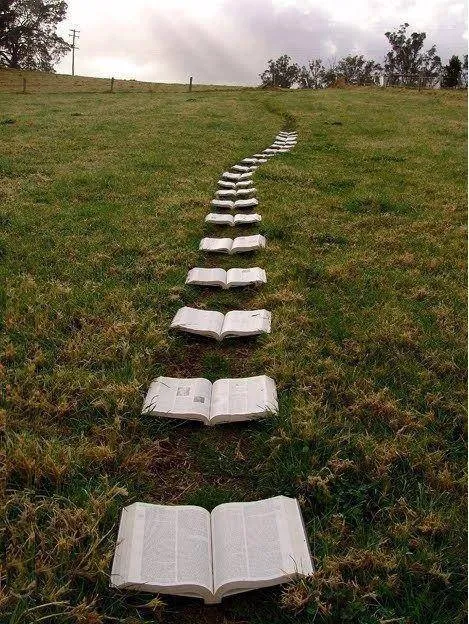“I recall with utter clarity the first great shock of my life.”
And I recall with utter clarity, when as a lad of 15 or so, I read that line for the first time. It’s the opening line from Leon Uris’ novel
Trinity – the first novel I remember really, really loving, that gave me that indescribable “good book butterflies” feeling in my gut. I understood this book. It’s the first book with which I had a dialogue. And it’s the first book that wouldn’t let go of me weeks, months, years after I’d finished it.
As I wrote the
“How I Learned To Read” post a few weeks ago, I started thinking about things — like reading
Trinity — that not only taught me how to read, but showed me just how much I loved books–watershed moments that showed me that books were an inextricable part of my life, and always would be. I’m not talking about obvious things – like an English degree, or my parents reading to me as a child, or telling friends I was sick or broke so I could stay in and read (though all those are important). I’m talking about things that you only realize later, things that seemed relatively run-of-the-mill at the time. I came up with two more.
The first happened on June 2, 2001. I had graduated from college the previous year, and was living at home with my parents, a situation I wasn’t entirely excited about. I was reading John Updike’s
Rabbit Run, and really loving it. Suddenly, I realized that of all the hundreds of books I’d read since I learned to read, I only remembered a few of them in any detail (
Trinity being one of them). So I started a reading journal. Every time I finish a book, I wait until the next day (you know, to let it “sink in” a bit) and then spend 30 minutes or so writing about the book. This list (that nobody has ever seen but me) is now approximately 475 single-spaced typed pages. And I’ve done this for every book I’ve ever read since then. I haven’t missed a single one. So thinking back to that summer night when I started the reading journal… I must’ve understood something about myself then – that I wanted to remember these things I loved so much – like photographs from a honeymoon, or a voicemail from a friends saved over the years.
The second happened a few summers ago. On a vacation to New York City, my girlfriend and I were sitting on a bench in Central Park, when I glanced to my left, and was stunned to spot novelist and philosopher Rebecca Goldstein on the bench right next to ours. I had just picked up her new novel
36 Arguments For The Existence of God, but I hadn’t read it yet. I started poking my girlfriend on the shoulder and whispering, “That’s a famous writer! I just bought her book!” “Go talk to her,” she suggested. Me: “Oh, God no — I don’t want to be that guy. I’d just make an ass of myself.”
I know writers are just people like you and me, but what I realized is that I idolize writers. The reason is almost too obvious to warrant mention: It’s because novelists do something I’ve only dreamed about doing. They’re the paragons of a craft that is quite possibly the most important (non-breathing) thing in my life. And this is what made me realize how much I truly loved books. Indeed, I loved books enough that I could put a person most people have never heard of on the same pedestal others put LeBron James or George Clooney or Bruce Springsteen.
In total, what I’ve come to realize is that I love reading much more than just as a hobby — something to pass the evening hours — but as something I almost literally couldn’t be without. What I’ve learned in reflecting on these things is about the intensity of the devotion more so than the devotion itself.
Now I won’t tell you a revisionist story about how I went home after that NYC vacation, and started my own novel immediately, or that I knew on that June day in 2001 that this reading journal would be the catalyst to a life-long devotion to books. All I can tell you is that thinking about them is incredibly rejuvenating!
I now know that books are a cornerstone of the model of myself that consists of all the non-negotiable pieces of who I am. Should I ever lose my way — hey, midlife is approaching, and we all know that that is often a time of crisis — I can rest assured I’ll always have books to keep me on course.










